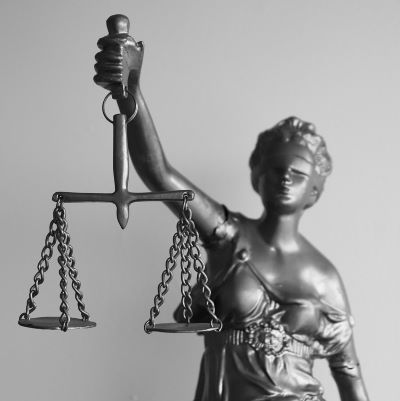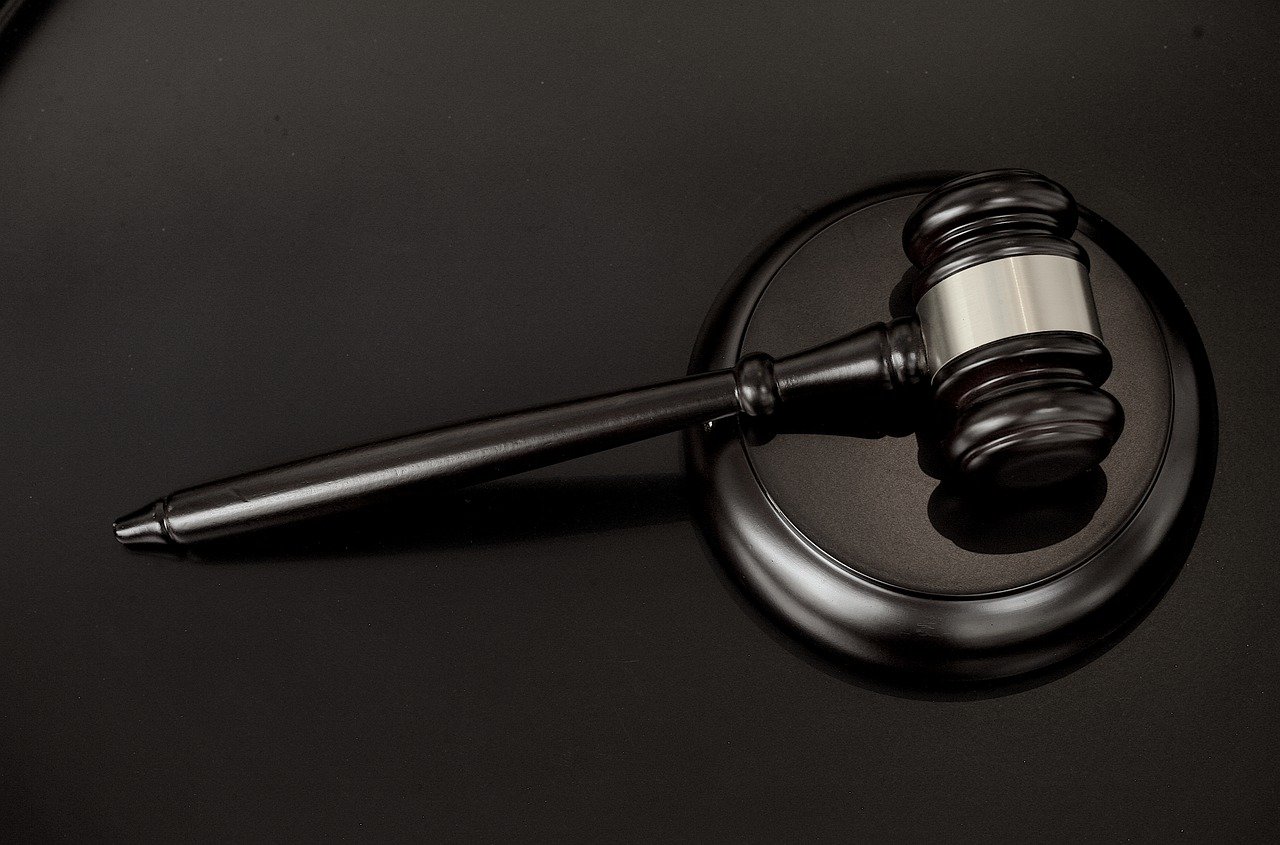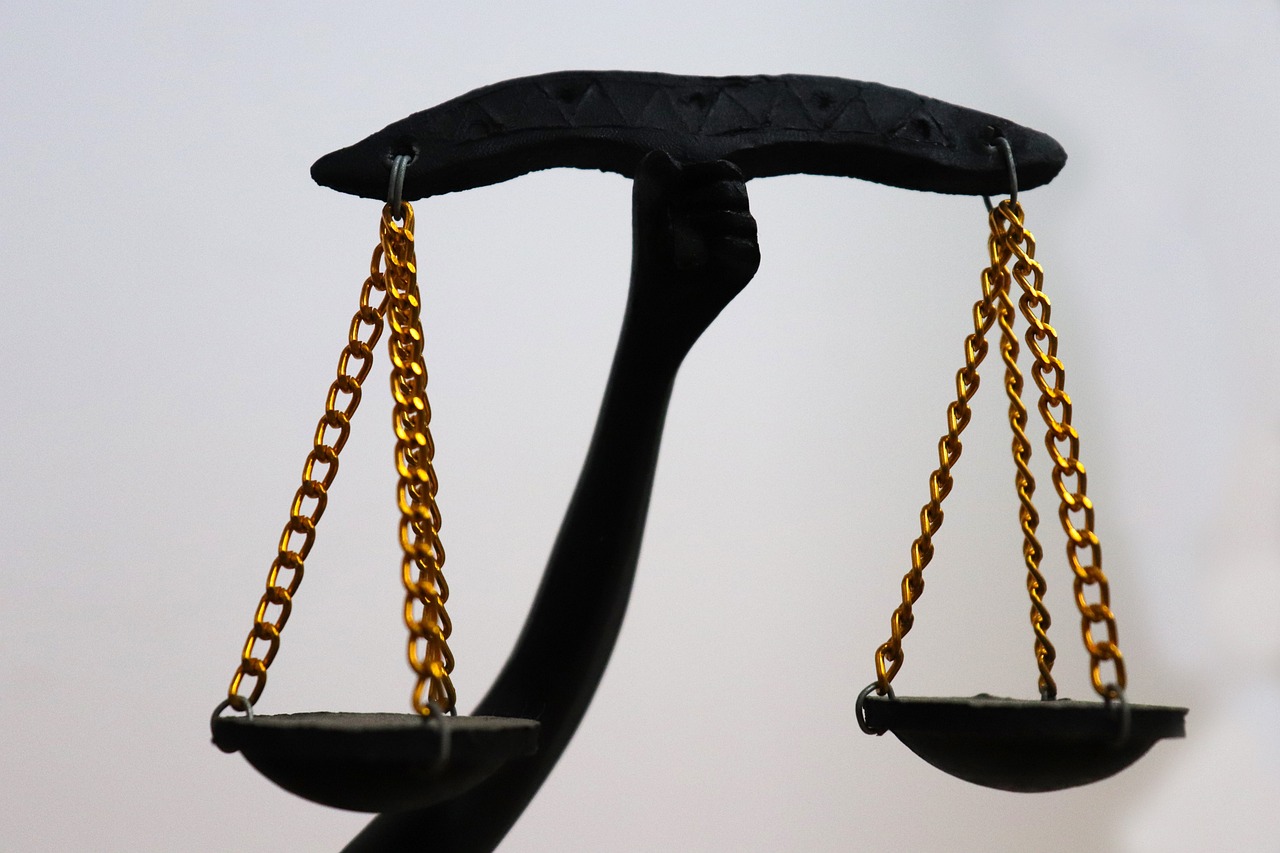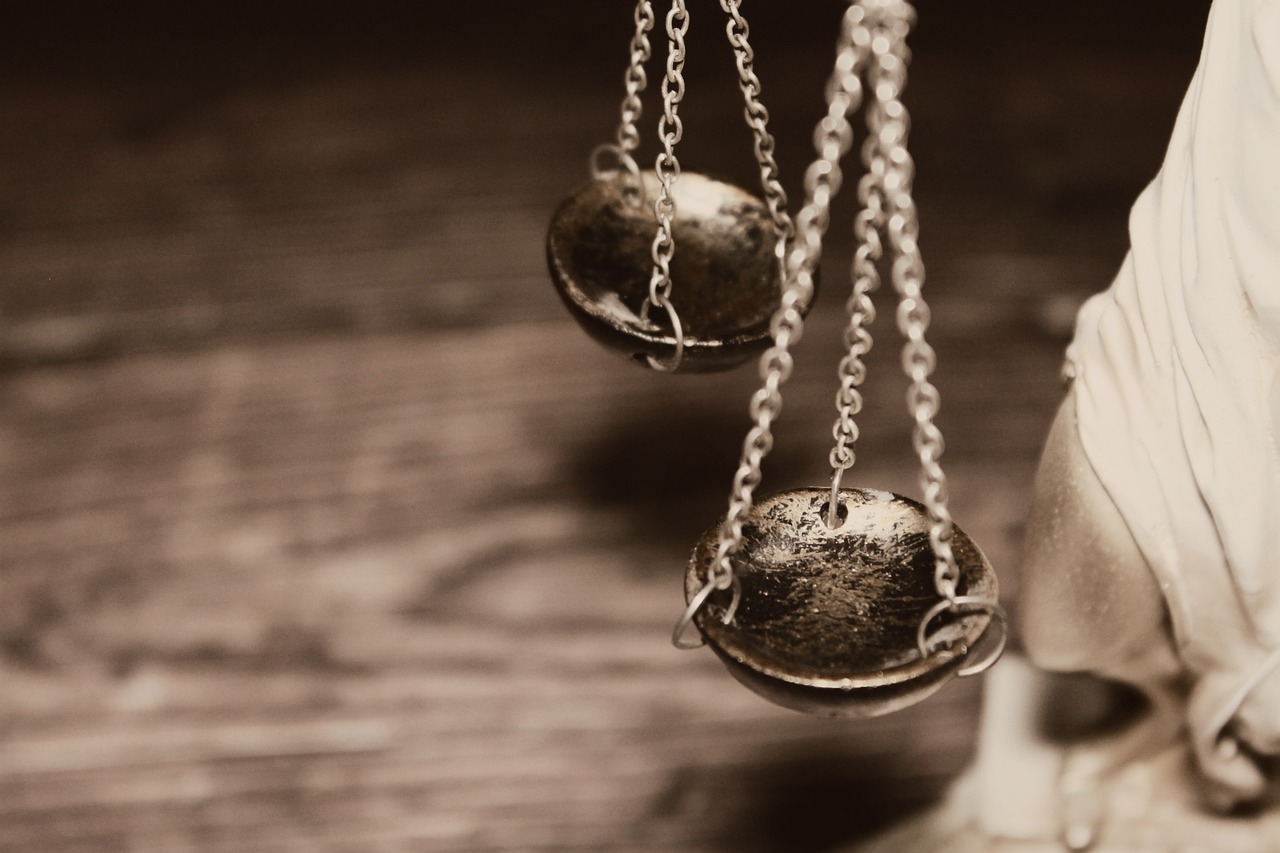
Zero Tolerance for Law Firm Malpractice
Law Firm Mal Practice” podcast delves into the intricate realm of legal ethics, examining cases of professional misconduct and negligence within law firms. Each episode dissects real-life scenarios, from breaches of client trust to mismanagement of cases, offering in-depth analysis and insights into the complexities of legal malpractice.
Hosted by seasoned legal experts and industry insiders, the podcast navigates through the nuances of ethical dilemmas, regulatory frameworks, and the consequences of malpractice. Whether you’re a legal professional, student, or simply intrigued by the legal world, “Law Firm Mal Practice” provides compelling narratives and valuable lessons on maintaining integrity and accountability in the legal profession.


Years of service


news and event
Stay updated on current affairs and happenings with our comprehensive coverage of news and events from around the world.
After a car crash, it is essential to collect as much proof as feasible. This consists of images of the crash scene, witness declarations, clinical records and cops reports. Discover more about this topic by visiting https://philadelphiacaraccidentlaw.com.
Also a relatively minor automobile mishap can have major repercussions. It is essential to employ a skilled Philly auto crash attorney that can aid you browse the lawful system and get the payment you should have.
1. Call the Police
Vehicle accidents can be life-changing experiences, with injuries and building damage that can dramatically change a target’s wellness and monetary circumstance. With numerous problems emerging after a crash, it is essential to focus on healing and take the needed steps to ensure your lawful security and civil liberties.
One of one of the most crucial actions is to call the police. This not only makes certain compliance with state law, yet it additionally produces a main cops record that will certainly be essential in any future legal process.
When the cops show up, it is essential to be polite and cooperative. Provide factual info about the mishap without confessing fault. Ideally, take pictures of the scene, including any kind of skid marks or road problems. Also, attempt to get the names, addresses and phone numbers of any type of witnesses. This will certainly aid your attorney build a strong situation for settlement. The main police report can likewise impede insurer from taking part in methods to devalue your insurance claim.
2. Gather Evidence
A successful automobile accident or wrongful fatality insurance claim depends on a solid collection of proof. This may consist of eyewitness testimony, clinical costs, authorities records, and other paperwork.
Photo and video proof is frequently the strongest and most convincing. It allows you to see and listen to exactly what took place at the scene of an accident. As an example, a broken stairway or other threat that caused a slip and loss is an excellent item of physical proof that can confirm carelessness.
It is likewise important to seek immediate clinical interest after any type of crash. This makes sure that any kind of injuries are recorded from the beginning, and it can assist validate whether you have experienced major injury. Preserving thorough documents of your medical expenditures will certainly additionally help evaluate your damages, including financial losses due to missed workdays. Your Philly cars and truck crash lawyer can assist you secure these and various other forms of proof that assistance your instance. They can also aid establish which sorts of payment you are entitled to, consisting of offsetting and compensatory damages.
3. Contact Your Insurer
Most of the times, you must contact your insurance provider to report the accident. This must be done while the information of the accident are fresh in your mind. Take pictures of the scene from several angles, obtain names and telephone number from witnesses, and supply a full account of the event to your representative.
You might also intend to track any kind of costs you sustain as a result of the car crash. These include medical expenses, travel prices for treatments, shed wages, and extra. A skilled Philly automobile mishap lawyer will certainly make sure you receive the full payment you are entitled to for all your damages.
Some car accident injuries can have long-lasting results on a target, including permanent disability. This can lead to significant monetary losses, especially if the target needs to use adaptive devices and requires frequent medical attention. An attorney can ensure the person or business responsible for your injury will certainly cover all of your costs, now and in the future.
4. Work with an Attorney
Automobile crashes can alter your life in an instant, leaving you with serious injuries, debilitating financial worries and enduring emotional trauma. While you focus on your healing, a Philly automobile accident attorney will wait you and defend the payment you are worthy of.
When choosing a lawyer, choose one with a proven document of success and extensive experience handling instances like yours. Ask friends and family for referrals, reviewed on-line testimonials, and consider a lawyer’s web site to find out more concerning their practice.
Once you have selected an attorney, they ought to be offered to address your concerns promptly and keep you updated on the standing of your instance on a regular basis. On top of that, they ought to be able to handle your situation within the two-year law of constraints. A Philly cars and truck mishap legal representative will have the ability to do this due to the fact that they are familiar with the legislations and laws that apply to these sorts of insurance claims.
The legal profession stands as a bastion of justice and integrity, with attorneys entrusted to uphold the rule of law and protect their clients’ interests. However, amidst the complexities of legal practice, instances of malpractice can arise, casting shadows over the profession’s ethical standards. Law firm malpractice, characterized by negligent or unethical conduct, not only jeopardizes client trust but also undermines the foundations of the legal system. This article ventures into the intricate terrain of law firm malpractice, examining its root causes, far-reaching consequences, and the imperative need for preventive measures.
Understanding Law Firm Malpractice:
Law firm malpractice encompasses a spectrum of behaviors by legal practitioners that breach professional standards and result in harm or loss to clients. These behaviors may include:
1. Breach of Fiduciary Duty: Attorneys owe a fiduciary duty to act in the best interests of their clients. Breaching this duty through conflicts of interest, self-serving actions, or neglecting client welfare constitutes malpractice.
2. Incompetence or Negligence: Failure to perform legal duties with the requisite competence and diligence can lead to malpractice claims. This may involve inadequate legal research, missed deadlines, or substandard representation, resulting in adverse outcomes for clients.
3. Misrepresentation or Fraud: Deliberate misrepresentation of facts, fabrication of evidence, or misleading statements by attorneys can constitute malpractice, undermining the integrity of the legal process and causing harm to clients and other parties involved.
4. Conflict of Interest: Law firms must navigate complex ethical boundaries to avoid conflicts of interest that compromise their ability to represent clients effectively. Failure to disclose conflicts or representing conflicting interests can lead to malpractice allegations.
Consequences of Law Firm Malpractice:
The consequences of law firm malpractice reverberate across multiple dimensions, affecting clients, legal practitioners, and the broader legal community. For clients, malpractice can result in financial losses, adverse legal outcomes, and profound emotional distress. Trust in the legal system may erode, leading to skepticism and reluctance to seek legal assistance in the future.
Moreover, law firm malpractice tarnishes the reputation of the entire legal profession. Instances of malpractice undermine public confidence in the integrity and ethics of attorneys, potentially deterring individuals from seeking justice through legal channels. This erosion of trust not only impacts the malpracticing firm but also has cascading effects throughout the legal community.
Legal practitioners implicated in malpractice face professional and personal repercussions. In addition to potential disciplinary actions by state bar associations, such as license suspension or revocation, lawyers may experience irreparable damage to their professional reputation. Rebuilding trust and credibility after being associated with malpractice can be a daunting endeavor, impacting career trajectories and personal well-being.
Prevention Strategies:
Preventing law firm malpractice demands a proactive and comprehensive approach, encompassing ethical standards, risk management protocols, and ongoing professional development. Here are some strategies to mitigate the risk of malpractice:
1. Adherence to Ethical Guidelines: Law firms must prioritize adherence to the highest ethical standards, including integrity, honesty, and client confidentiality. Establishing clear ethical guidelines and providing regular training and oversight can help ensure compliance and prevent inadvertent violations.
2. Competence and Due Diligence: Attorneys must maintain competence in their respective areas of practice and exercise due diligence in representing clients. This includes staying abreast of legal developments, conducting thorough research, and seeking assistance or collaboration when facing unfamiliar or complex matters.
3. Conflict Checking Mechanisms: Implementing robust conflict checking mechanisms is essential to identifying and addressing conflicts of interest promptly. Utilizing technology solutions and maintaining comprehensive conflict databases can help law firms navigate ethical dilemmas and avoid malpractice allegations.
4. Communication and Transparency: Open communication with clients regarding case developments, potential risks, and legal strategies fosters trust and reduces the likelihood of misunderstandings or disputes. Lawyers should provide clear and transparent explanations of legal processes and decisions, empowering clients to make informed choices.
5. Continuous Improvement: Embracing a culture of continuous improvement enables law firms to adapt to evolving legal landscapes and emerging risks. Regularly reviewing and updating internal policies, procedures, and training programs ensures that attorneys remain vigilant against malpractice pitfalls.
Conclusion:
Law firm malpractice poses significant challenges to the legal profession, threatening client trust, professional integrity, and the credibility of the legal system. By understanding the root causes of malpractice and implementing proactive prevention strategies, law firms can mitigate risks and uphold the highest standards of ethical conduct and professionalism. Ultimately, fostering a culture of accountability, transparency, and continuous improvement is paramount to safeguarding the interests of clients and preserving the integrity of the legal profession.
In the complex and often high-stakes world of legal practice, the trust between clients and their attorneys is paramount. However, despite the rigorous training and ethical standards within the legal profession, instances of malpractice can occur, posing significant risks to both clients and practitioners alike. Law firm malpractice, characterized by negligent or unethical conduct, can have far-reaching consequences, ranging from financial loss to reputational damage. This article examines the nuances of law firm malpractice, delving into its causes, implications, and strategies for prevention.
Understanding Law Firm Malpractice:
Law firm malpractice encompasses a wide array of unethical or negligent behaviors by legal practitioners that result in harm or loss to their clients. These malpractices can manifest in various forms, including:
1. Breach of Fiduciary Duty: Attorneys are bound by a fiduciary duty to act in the best interests of their clients. Breaching this duty through conflicts of interest, self-serving actions, or prioritizing personal gain over client welfare constitutes malpractice.
2. Incompetence or Negligence: Failure to exercise the level of competence and diligence expected of a reasonable attorney can lead to malpractice claims. This may involve inadequate legal research, missed deadlines, or substandard representation, resulting in adverse outcomes for the client.
3. Misrepresentation or Fraud: Deliberate misrepresentation of facts, fabrication of evidence, or misleading statements by attorneys can constitute malpractice, undermining the integrity of the legal process and causing harm to clients and other parties involved.
4. Conflict of Interest: Law firms must navigate complex ethical boundaries to avoid conflicts of interest that compromise their ability to represent clients effectively. Failure to disclose conflicts or representing conflicting interests can lead to malpractice allegations.
Consequences of Law Firm Malpractice:
The consequences of law firm malpractice can be severe and multifaceted, impacting clients, legal practitioners, and the broader legal community. For clients, experiencing malpractice can result in financial losses, adverse legal outcomes, and emotional distress. Trust in the legal system may be eroded, leading to disillusionment and reluctance to seek legal assistance in the future.
Moreover, law firm malpractice tarnishes the reputation of the entire legal profession. Instances of malpractice undermine public confidence in the integrity and ethics of attorneys, potentially deterring individuals from seeking legal recourse when needed. This erosion of trust not only affects the malpracticing firm but also has ripple effects throughout the legal community.
Legal practitioners implicated in malpractice face professional and personal repercussions. In addition to potential disciplinary actions by state bar associations, such as license suspension or revocation, lawyers may suffer irreparable damage to their professional reputation. Rebuilding trust and credibility after being associated with malpractice can be a formidable challenge, impacting career prospects and personal well-being.
Prevention Strategies:
Preventing law firm malpractice requires a proactive and multifaceted approach that encompasses ethical standards, risk management protocols, and ongoing professional development. Here are some strategies to mitigate the risk of malpractice:
1. Adherence to Ethical Guidelines: Law firms must prioritize adherence to the highest ethical standards, including integrity, honesty, and client confidentiality. Establishing clear ethical guidelines and providing regular training and oversight can help ensure compliance and prevent inadvertent violations.
2. Competence and Due Diligence: Attorneys must maintain competence in their respective areas of practice and exercise due diligence in representing clients. This includes staying abreast of legal developments, conducting thorough research, and seeking assistance or collaboration when facing unfamiliar or complex matters.
3. Conflict Checking Mechanisms: Implementing robust conflict checking mechanisms is essential to identifying and addressing conflicts of interest promptly. Utilizing technology solutions and maintaining comprehensive conflict databases can help law firms navigate ethical dilemmas and avoid malpractice allegations.
4. Communication and Transparency: Open communication with clients regarding case developments, potential risks, and legal strategies fosters trust and reduces the likelihood of misunderstandings or disputes. Lawyers should provide clear and transparent explanations of legal processes and decisions, empowering clients to make informed choices.
5. Continuous Improvement: Embracing a culture of continuous improvement enables law firms to adapt to evolving legal landscapes and emerging risks. Regularly reviewing and updating internal policies, procedures, and training programs ensures that attorneys remain vigilant against malpractice pitfalls.
Conclusion:
Law firm malpractice poses significant challenges to the legal profession, threatening client trust, professional integrity, and the credibility of the legal system. By understanding the root causes of malpractice and implementing proactive prevention strategies, law firms can mitigate risks and uphold the highest standards of ethical conduct and professionalism. Ultimately, fostering a culture of accountability, transparency, and continuous improvement is essential to safeguarding the interests of clients and preserving the integrity of the legal profession.
In the realm of legal practice, the trust between a client and their attorney is sacrosanct. However, despite the ethical standards and rigorous training within the legal profession, instances of malpractice can occur, casting shadows over the integrity of law firms. Law firm malpractice, characterized by negligent or unethical conduct, not only undermines the trust essential for the legal system but also imposes severe consequences on both clients and practitioners. This article delves into the intricacies of law firm malpractice, exploring its implications, causes, and preventive measures.
Understanding Law Firm Malpractice:
Law firm malpractice encompasses a spectrum of unethical or negligent behaviors by legal practitioners that result in harm or loss to their clients. These malpractices can manifest in various forms, including but not limited to:
1. Breach of Fiduciary Duty: Lawyers owe a fiduciary duty to their clients, requiring them to act in the client’s best interest. Breaching this duty through conflicts of interest, self-dealing, or prioritizing personal gains over client welfare constitutes malpractice.
2. Incompetence or Negligence: Failure to perform legal duties with the level of competence and diligence expected of a reasonable attorney can lead to malpractice claims. This may involve inadequate research, missed deadlines, or substandard representation, resulting in adverse outcomes for the client.
3. Misrepresentation or Fraud: Deliberate misrepresentation of facts, fabrication of evidence, or misleading statements by attorneys can constitute malpractice, undermining the integrity of the legal system and causing harm to clients and other parties involved.
4. Conflict of Interest: Law firms must navigate complex ethical boundaries to avoid conflicts of interest that compromise their ability to represent clients effectively. Failure to disclose conflicts or representing conflicting interests can lead to malpractice allegations.
Consequences of Law Firm Malpractice:
The repercussions of law firm malpractice extend far beyond financial losses or legal sanctions. For clients, experiencing malpractice can shatter trust in the legal system and inflict significant emotional distress. Financial ramifications, including loss of assets or settlements, can exacerbate the already stressful situation, leaving clients disillusioned and seeking recourse.
Moreover, law firm malpractice tarnishes the reputation of the entire legal profession. Public perception of attorneys as guardians of justice diminishes when instances of malpractice come to light. This erosion of trust not only affects the malpracticing firm but also undermines confidence in the legal system as a whole, potentially deterring individuals from seeking legal assistance when needed.
Legal practitioners implicated in malpractice face professional and personal consequences. Aside from potential disciplinary actions by state bar associations, including license suspension or revocation, lawyers may suffer irreparable damage to their professional reputation. Rebuilding trust and credibility after being associated with malpractice can be a daunting task, impacting career prospects and personal well-being.
Prevention Strategies:
Preventing law firm malpractice requires a multifaceted approach encompassing ethical standards, risk management protocols, and continuous professional development. Here are some strategies to mitigate the risk of malpractice:
1. Adherence to Ethical Guidelines: Law firms must uphold the highest ethical standards, prioritizing integrity, honesty, and client confidentiality. Establishing robust ethical guidelines and ensuring compliance through regular training and oversight can prevent inadvertent violations that may lead to malpractice.
2. Competence and Due Diligence: Attorneys must maintain competence in their respective areas of practice and exercise due diligence in representing clients. This includes staying abreast of legal developments, conducting thorough research, and seeking assistance or collaboration when facing unfamiliar or complex matters.
3. Conflict Checking Mechanisms: Implementing rigorous conflict checking mechanisms is crucial to identifying and addressing conflicts of interest promptly. Utilizing technology solutions and maintaining comprehensive conflict databases can help law firms navigate ethical dilemmas and avoid malpractice allegations.
4. Communication and Transparency: Open communication with clients regarding case developments, potential risks, and legal strategies fosters trust and reduces the likelihood of misunderstandings or disputes. Lawyers should provide clear and transparent explanations of legal processes and decisions, empowering clients to make informed choices.
5. Continuous Improvement: Embracing a culture of continuous improvement enables law firms to adapt to evolving legal landscapes and emerging risks. Regularly reviewing and updating internal policies, procedures, and training programs ensures that attorneys remain vigilant against malpractice pitfalls.
Conclusion:
Law firm malpractice poses significant challenges to the legal profession, jeopardizing client trust, professional integrity, and the credibility of the legal system. By understanding the root causes of malpractice and implementing proactive prevention strategies, law firms can mitigate risks and uphold the highest standards of ethical conduct and professionalism. Ultimately, fostering a culture of accountability, transparency, and continuous improvement is essential to safeguarding the interests of clients and preserving the integrity of the legal profession.


